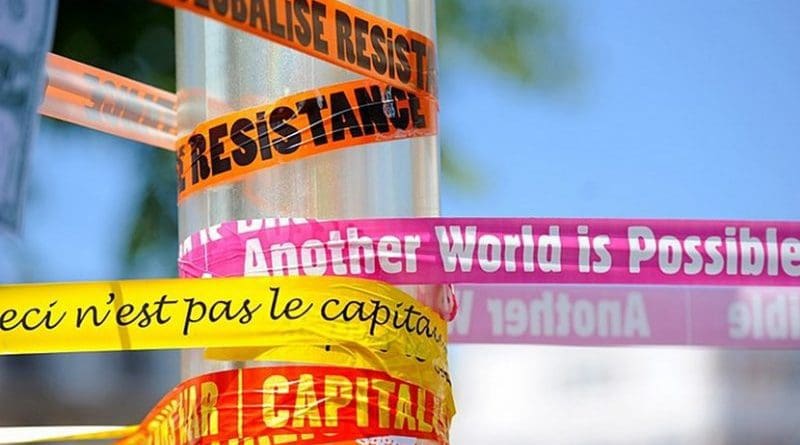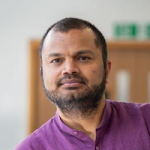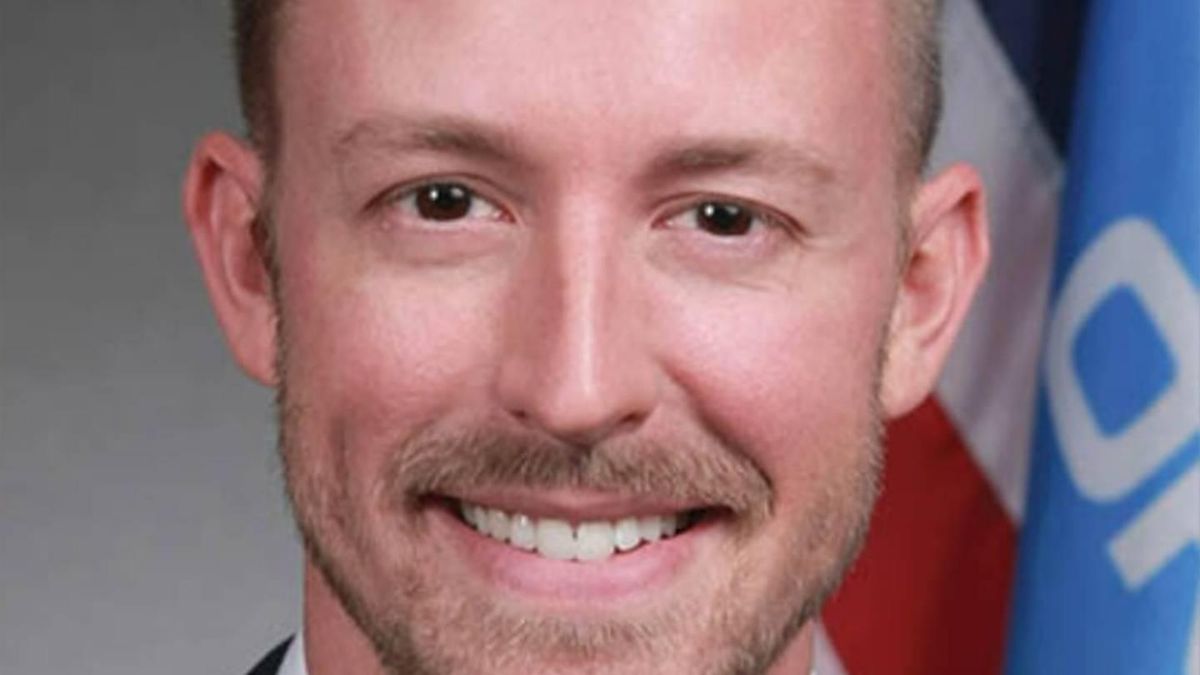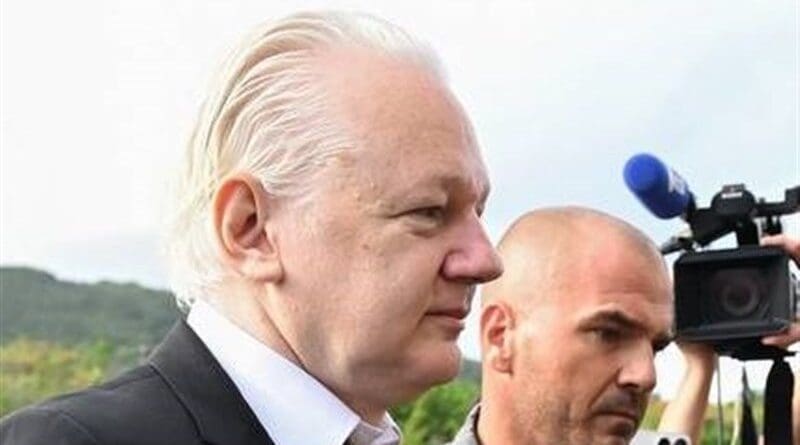Free societies cannot exist without free speech. Nor can free societies survive without independent media able and willing to speak truth to power. Both these free speech pillars have been badly corroded over the last four years, as I argued in The Spectator Australia on 17 April 2021 and again in a Brownstone article on 15 March 2023. The World Health Organisation (WHO) declared Covid-19 a public health emergency of international concern on 30 January 2020 and a pandemic on 11 March, by which time it had been detected in 114 countries and more than 4,000 people had died with the disease.
On 19 March, New Zealand’s Prime Minister Jacinda Ardern declared: ‘We will…be your single source of truth.’ Although Ardern was the only national leader to articulate the belief in governmental monopoly of health truth so baldly, almost all governments as well as the WHO acted on the same belief to impose draconian curbs on dissenting and critical voices for the next three years. The net result was to worsen the pathologies associated with lockdown, mask, and vaccine policies, ensuring that the cure has indeed turned out to be worse than the disease.
In a completely unrelated matter, after twelve years on the run and in prison, Julian Assange was released last month following a plea bargain. A journalist, publisher, and whistleblower rolled into one, Assange’s sin was to have exposed the crimes of leading Western governments. Assange is not a US citizen and was not physically in the US during the release of the classified documents. It’s not clear therefore why he should have been subject to the extraterritorial assertion of US legal jurisdiction.
This is especially so when we recall that on 30 September 2011, Anwar al-Awlaki, an American of Yemeni descent, was killed by a US drone strike somewhere in Yemen – the first instance of a US citizen being the victim of a targeted assassination. The hit was executed on the orders of President Barack Obama without any due process of trial and conviction. An incident worth recalling in the context of Justice Sonia Sotomayor’s hysterical dissenting note in the Supreme Court’s recent judgment on presidential immunity.
Assange was given diplomatic sanctuary in the Ecuadorian embassy in London in June 2012. The asylum was revoked by Ecuador in April 2019. In May 2019, the US revealed a previously sealed 2018 indictment and added 17 espionage charges. He was arrested by the UK police in April 2019 and held in detention until his release and flight home to Australia in June 2024.
Australians have been and remain deeply conflicted by the whole saga, with opinion polarised between those who elevated his case to a cause célèbre and are celebrating his return, and others who regard him as a traitor and are revolted by the fuss over his return. The differences in opinion transcend the left-right ideological and party-political divides. Simon Jackson, former CEO of Sydney University’s US Studies Centre, described Assange as ‘a convicted felon’ – the language that Bidenites are using against Trump, with as much lack of success in damning him in the court of public opinion.
I have previously been critical of some policies of the Albanese government. In this instance, not only did he get the big picture right. He also eschewed megaphone diplomacy to engage in sustained quiet diplomacy from the start, including intensive negotiations with the US Department of Justice. Ambassador Kevin Rudd in Washington and High Commissioner Stephen Smith in London were also engaged with the issue. They picked up the ball on assuming office, took ownership of the Assange file, kept their eyes on the prize despite multiple distractions, and delivered a pragmatic compromise to bring him home.

What If?
Assange pleaded guilty to a ‘conspiracy to disseminate national defense information.’ This is a charge that would have been just as applicable to the publication of The Pentagon Papers by Daniel Ellsberg. The journey from the latter to WikiLeaks and the persecution of Assange is the story of the fall of investigative journalism and the triumph of the national security and surveillance state in which most of the contemporary media is now nested. The key question today as in 1971 is not the right of journalists or the news media to publish classified information, but the people’s right to the information necessary to expose the crimes and corruption of public officials.
Wikileaks was set up in 2006 and published the Afghan and Iraq war logs in 2010 for the 2004–09 years inclusive, consisting of 91,000 Afghanistan war documents and almost 392,000 US army field reports from Iraq. In 2016, WikiLeaks published internal Democratic Party documents that revealed the extent to which the party organisation had interfered in the primaries against Bernie Sanders to tilt the scales in Hillary Clinton’s favour. In 2017 WikiLeaks released details of CIA hacking capabilities and software tools.
Information from WikiLeaks was initially published in collaboration with some of the world’s leading media outlets, including the Guardian, New York Times, Der Spiegel, El País, and Le Monde newspapers, redacted to protect the identities of sources and personnel. Once the US state began to hound Assange, all these stalwarts of the MSM abandoned him.
What if Assange had founded WikiLeaks in 2019 and first come to global prominence in 2024 for leaking troves of documents that detailed the murky shenanigans behind lockdowns, masks, and vaccines, and collusion between state actors, Big Pharma, Big Tech, and legacy and social media? After all, by now we have enough reason to wonder about the involvement of key national security agencies in the saga, starting with the US Department of Defense funding of gain-of-function research in foreign labs in order to do an end-run around US legal prohibitions. Nor can we ignore the geopolitical considerations in and consequences of the pandemic policies with respect to the strategic rivalry between China and the United States.
The ‘what if’ question is prompted by the chronological coincidence of three legal cases. On 26 June, the Wall Street Journal reporter Evan Gershkovich went to trial in a court in Yekaterinburg, Russia on espionage charges; Assange returned home; and, in a 6-3 split judgment based on a legal technicality that did not address the substantive merits of the Murthy v Missouri case, the US Supreme Court enabled the continued government censorship of social media posts so long as it was sophisticated and not overt and crude.
Four Grounds for Defending Assange
Regardless of the personal character of Assange for good or bad, what he did with WikiLeaks can be justified on four grounds.
First, countries often go to war based on lies and media manipulation: Japan’s conquest of Manchuria in the 1930s, the Tonkin Gulf resolution in 1964 that midwifed the Vietnam War, the 2003 Iraq war, and Russia’s invasion of Ukraine. War has traditionally performed certain functions in international relations as the arbiter of the creation, survival, and elimination of actors in the system, of the ebb and flow of political frontiers, and of the rise and decline of regimes. The right to wage war and acquire colonies was once an accepted attribute of state sovereignty.
However, based on the ‘better angels’ of human nature, there has been a long-term shift from the power end of the spectrum towards the normative end as the pivot on which history turns, with a reduction in societal, national, and international violence. Increasing normative, legislative, and operational fetters were placed on the right of states to go to war unilaterally in the twentieth century. Yet, the last century turned out to be the most murderous in history. In order to help reduce the mortality burden of international conflicts, civilised societies committed to the rule of law must protect those who would expose official mendacity to manipulate countries into foreign wars of choice.
Second, Assange revealed some acts of outright criminality with no military justification whatsoever. The mass release of secret documents by WikiLeaks began to reveal the true extent of the blood price of Iraq. WikiLeaks released video footage, dubbed Collateral Murder, of US helicopter airstrikes in Baghdad on 12 July 2007 in which more than a dozen civilians were shot dead. Between them, the 18-minute short and 39-minute full versions have been viewed 20 million times on YouTube.
The roots of international humanitarian law (IHL) are to be found in the tradition of ‘just war,’ which focuses not simply upon the circumstances leading to the initiation of hostilities (jus ad bellum), but also on the conduct of hostilities themselves (jus in bello). IHL was very much a product of the Enlightenment which witnessed the rise of individualism as a counterpoint to the potency of raison d’état as sufficient justification for the unconstrained use of force. The ‘Law of Geneva’ took its name in particular from the 1929 Geneva Convention Relative to the Treatment of Prisoners of War and the four Geneva Conventions of 1949, which dealt with the wounded and sick, prisoners of war, and protected civilians.
Short of war, illegal covert operations against friendly foreign governments to benefit private commercial actors also deserve exposure. The ‘Witness K’ and Bernard Collaery case dealt with Australian spies ordered to install listening devices in East Timor’s cabinet room. In 2018 Australia prosecuted ‘K,’ a former member of the Australian Secret Intelligence Service who allegedly exposed breaches of domestic and international laws by Australian intelligence operatives in East Timor. Canberra-based lawyer Collaery, a former Attorney-General of the Australian Capital Territory, who represented both East Timor’s interests and acted as K’s personal lawyer, was charged with disclosing protected information.
‘K’ pleaded guilty in June 2021, was convicted, and given a three-month suspended sentence. Proceedings against Collaery were discontinued by the Albanese government in July 2022. Shamefully, no action was ever taken against the political and bureaucratic officials responsible for the illegal spying on a friendly and vulnerable government in order to benefit a private sector firm. The key beneficiary was Woodside Petroleum, which wanted access to the oil and gas fields in the Timor Sea.
Foreign Minister Alexander Downer signed off on embedding Australian spies in Australian foreign aid assistance to East Timor. On retirement from politics, Downer obtained a generous consultancy with Woodside. This is the man who seems upsetabout the Albanese government’s campaign to secure the release of Assange, ‘a convicted man who stole national security communications and handed them over to the media.’
Third, it’s wrong to believe that US and Western malfeasance has no consequences vis-à-vis other countries. Instead of demonstrating unlimited US power, Iraq, Afghanistan, Libya, and Syria brutally exposed the limits to US power to impose American will on local populations willing to fight back. I argued in real time as a UN official that blowback from the illegal Iraq war would erode domestic public support for overseas military entanglements across the West, sap the US resolve to go to war against another Islamic country in particular, and that the big strategic victor of the war would be Iran.
The Iraq war gravely damaged the US global reputation as a country that respects the rule of law. As the influential Economist magazine noted on 23 May 2014: ‘The most glaring source of global scepticism towards American affection for international law can be summed up in one word: Iraq.’ It fed the global narrative that under the influence of the military-industrial complex, the United States is engaged in a permanent war, continually bombs other countries, makes more weapons than it needs, and sells more arms to foreign countries than is prudent.
Beyond Western allies, the US and Western behaviour also set the template for the mimetic actions of other countries. As power shifts away from the US-led West, it becomes correspondingly more important for citizens to check potential abuses by their own governments in overseas jurisdictions rather than fuel anti-Western sentiments. This is what The Hindu, one of India’s premier English dailies, had to say in an editorial on 26 June:
Julian Assange did what journalists do in free societies. He published troves of secret documents exposing the conduct of America’s wars in Afghanistan and Iraq…
[T]he pursuit of a whistle-blower for over 14 years [will] remain a blot on western democracies, especially the UK and the US, forever.
Fourth, the relentless pursuit of Assange and subsequently of Edward Snowden were important milestones on the path, via the national security, administrative, and surveillance state, to the rise of the biomedical state in which we now find ourselves. This thesis is of course captured in the subtitle of my book Our Enemy, the Government: How Covid Enabled the Expansion and Abuse of State Power. The media and judiciary are among the key public institutions that failed to expose and check government excesses and violations of citizens’ rights. In yet another parallel, no US official has apologised either for the crimes Assange exposed and his persecution, or for the Covid crimes against citizens and the persecution of the dissenters from the pandemic intervention orthodoxy.
Liberal judges can be impressively creative in inventing standing for plaintiffs in popular causes like environmental and racial justice. By contrast, conservative judges tend to be far more, well, conservative. Amy Coney Barrett and Brett Kavanaugh are Trump appointees. Had the two ruled the other way in the Murthy v Missouri case, the Court would have found 5-4 for the plaintiffs on the technicality of lack of standing and, hopefully, terminated state-coerced censorship by social media platforms. If President Trump had shown similar cowardice and ducked tough fights, neither Barrett nor Kavanaugh would be a Supreme Court Justice today.
While this is the proximate takeaway from the unfortunate verdict, the bigger ‘structural takeaway’ is the confirmation of the judiciary as part of the infrastructure of the state and not a totally independent actor that stands apart and holds the state to account. The state can henceforth eschew attempts to demand bans on individuals and simply ask the social media platforms to enforce their own rules more aggressively. This is sufficient plausible separation to protect both parties from legal jeopardy – at least until such time as someone is deemed to have the requisite legal standing (Robert F Kennedy, Jr?) and the court decides the case of state-directed censorship by social media on merits.
The WikiLeaks saga also showed that the draconian powers of the US government are able to direct and influence credit card companies and financial institutions to hew to the government line against the rights of individuals and legal entities. This aspect of the WikiLeaks saga too foreshadowed what was to happen in more extreme form during the Covid years, most notably in the hounding of the Canadian truckers’ Freedom Convoy and their supporters by Justin Trudeau.
Beyond Embarrassing Governments, Any Hard Evidence of Individuals Who Were Endangered?
One final thought. The WikiLeaks document dumps caused great embarrassment to some governments. However, for all the repetitions of the core charge against Assange that he put the lives of US and allied soldiers, including Australians, at risk, no credible evidence has been produced that this actually happened. The gaslighting foreshadowed much of the basis of Covid tyranny, that to publicly question the efficacy of lockdown, mask, and vaccine interventions and mandates was to engage in selfish behaviour that put whole societies at risk of grave health harms, and that the risk to the community’s health was sufficient to justify the most draconian clampdown on free speech and to dismiss doctors.
Conversely, if soldiers’ deaths can be attributed to unauthorised disclosures, then it’s fine to charge the leakers.
Nine years ago, UN special rapporteur on privacy Joseph Cannataci argued that the world needs a Geneva Convention type of law to protect people from the threat of massive clandestine digital surveillance. As this shows, not everyone connected with the UN system embraces illiberal instincts to authoritarianism!
- This was published at Brownstone Institute and is an expanded version of an article published in the Spectator Australia magazine (6 July).

Ramesh Thakur
Ramesh Thakur, a Brownstone Institute Senior Scholar, is a former United Nations Assistant Secretary-General, and emeritus professor in the Crawford School of Public Policy, The Australian National University.








